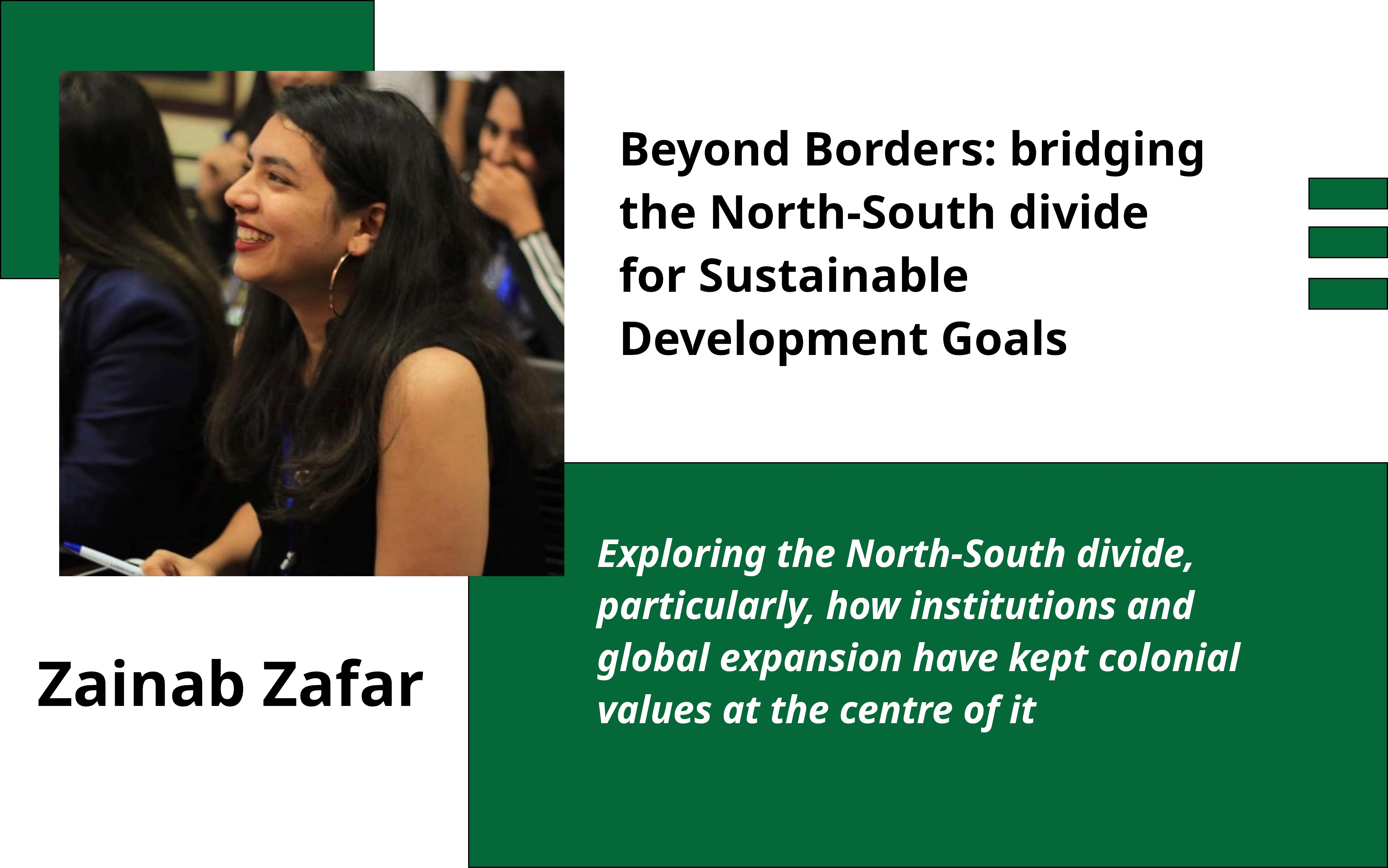By Zainab Zafar
Exploring the North-South divide, particularly, how institutions and global expansion have kept colonial values at the centre of it. Institutions and global expansion have always kept colonial ideologies at the heart of it. Exploring the North-South divide and its impact on achieving the Sustainable Development Goals there is a need to address the control of knowledge, resource and vulnerable position of the South that is often exploited.
The distribution of power and wealth remains an issue of concern. The World Bank, for instance, has been critiqued for these very reasons. Many of these institutions were created keeping in mind the imperialism mindset and are inapplicable to developing countries. Global economic policymaking remains in the hands of the colonial powers. This in turn leaves developing countries off the table for discussion. Without realizing what is the best fit for the country, the Western idea is then coerced into developing nations in an attempt to catch up economically. However, there is no one size fits all policy for every country. Simply taking into account the climate difference, which then affects the working conditions and employment types there is no singular path that can be followed.
With climate in mind, it is equally important to address the effect of climate alongside the North-South Divide. The pandemic provided us with a litmus test for one-size-fits-all policies. North and South followed lockdown policy, but the South saw countries left in shambles. This is the case for climate change.
With mass media showing factories present in the South emitting toxic fumes they fail to acknowledge the multi-million corporations sitting in the North exploiting the loose legislation in the South. As mentioned before, much like global economic policymakers, global climate change policies come at the hands of colonial powers. This means they are fitting policies to their respective countries but do not take into account the living conditions of the South.
Mass media plays an integral role in shaping our image of these facts. Particularly, the showcasing of climate disasters. The idea behind it is, the media has desensitized individuals to accept the suffering of developing countries as the norm but not for the developed. Keeping in mind the image that has been created of the realities and hardships of the South being normalised, it affects achievement of the SDGs. The need for global cooperation is deeply hindered.
The emergence of climate refugees is a testimony to the atrocities committed by developed nations when exploiting resources and loophole legislation to mass-produce products for their economic gain.
As we move forward, it is integral to divide policy equitably making power. If the North believes in its moral authority then equally there remains a moral duty towards communities shattered at the expense of their production. Profiting over care for communities or the plant needs to be separated to ensure the 2013 Rana Plaza collapse in Bangladeshis not a common occurrence.
To achieve the sustainable development goals there is a need for immense cooperation between nations and this is only possible by bridging the North-South Divide. There is a dire need to understand the differences in climate, politics, and cultural environment and tailor solutions to fit the country it is to be implemented. At the same time, there is a need for scrutiny. This does not pertain to simply countries producing the highest carbon emission but to take a step back and see the full picture holistically. Countries and MNCs that have found loophole legislation to exploit developing countries need to be examined and equally scrutinized for their actions. Without this, we will fail to achieve an effective framework of legislation and continue the vicious cycle of exploitation within the North-South divide.
Equally, this extends to addressing the digital divide present between the two sides. The Digital revolution as we enter this digital era will be essential to achieving the SDGs. From creating more jobs and educational opportunities as well as addressing inequalities. The digital divide impacts the overall development towards achieving the SDGs.
There is a need to recognise that if policies are curated to suit different countries and the devastating impact of applying the same policy in multiple countries, essentially, the implementation of a one-size fits all policy can be detrimental. There is a need for collaboration between the North and South with scrutiny on both ends otherwise we have only leave room for the perfect recipe for instability.
The writer is a student based in Islamabad


